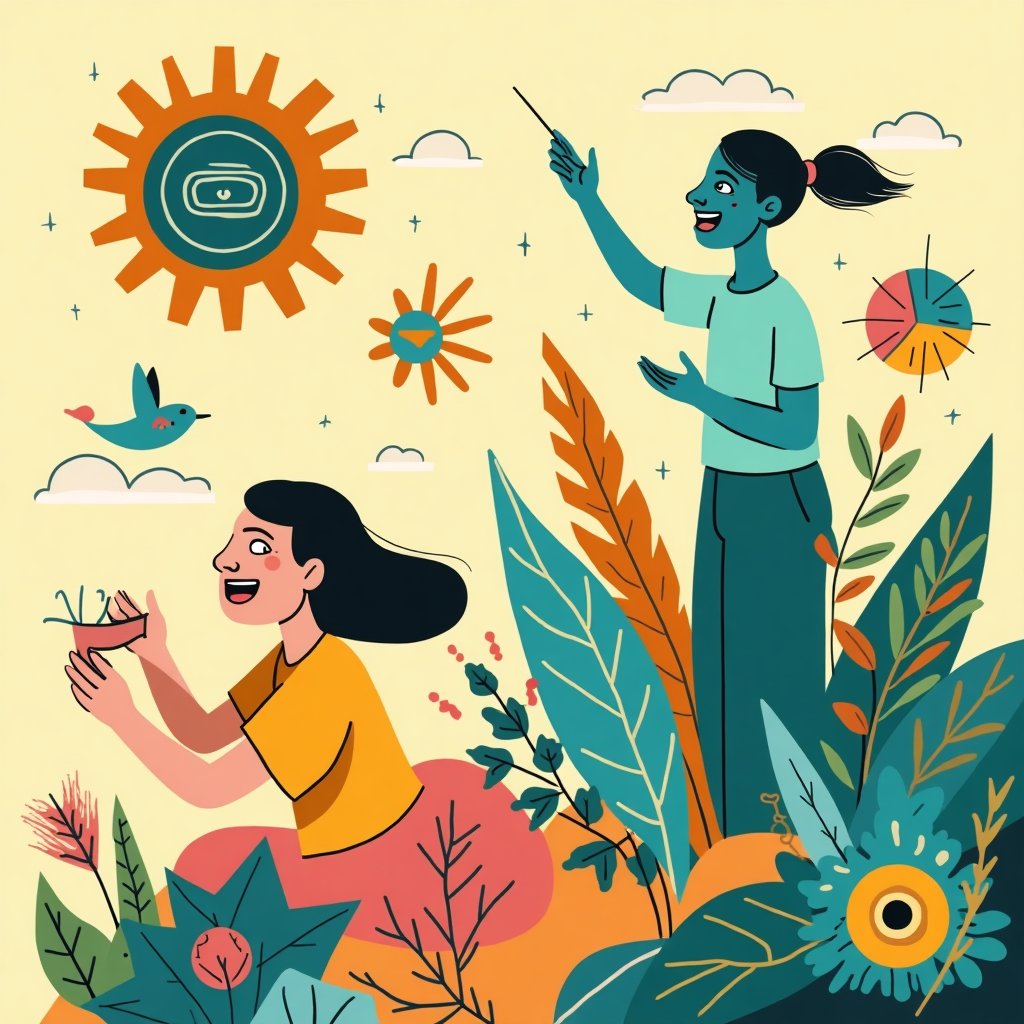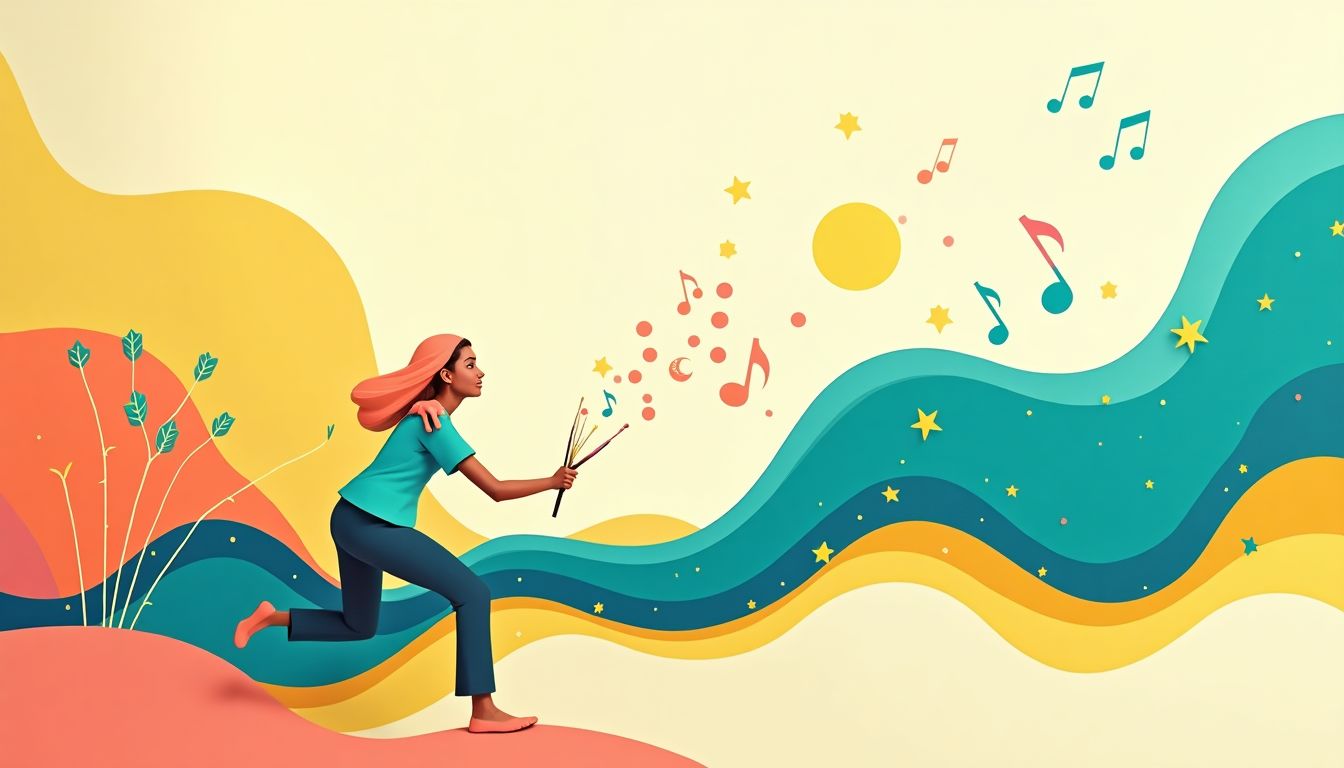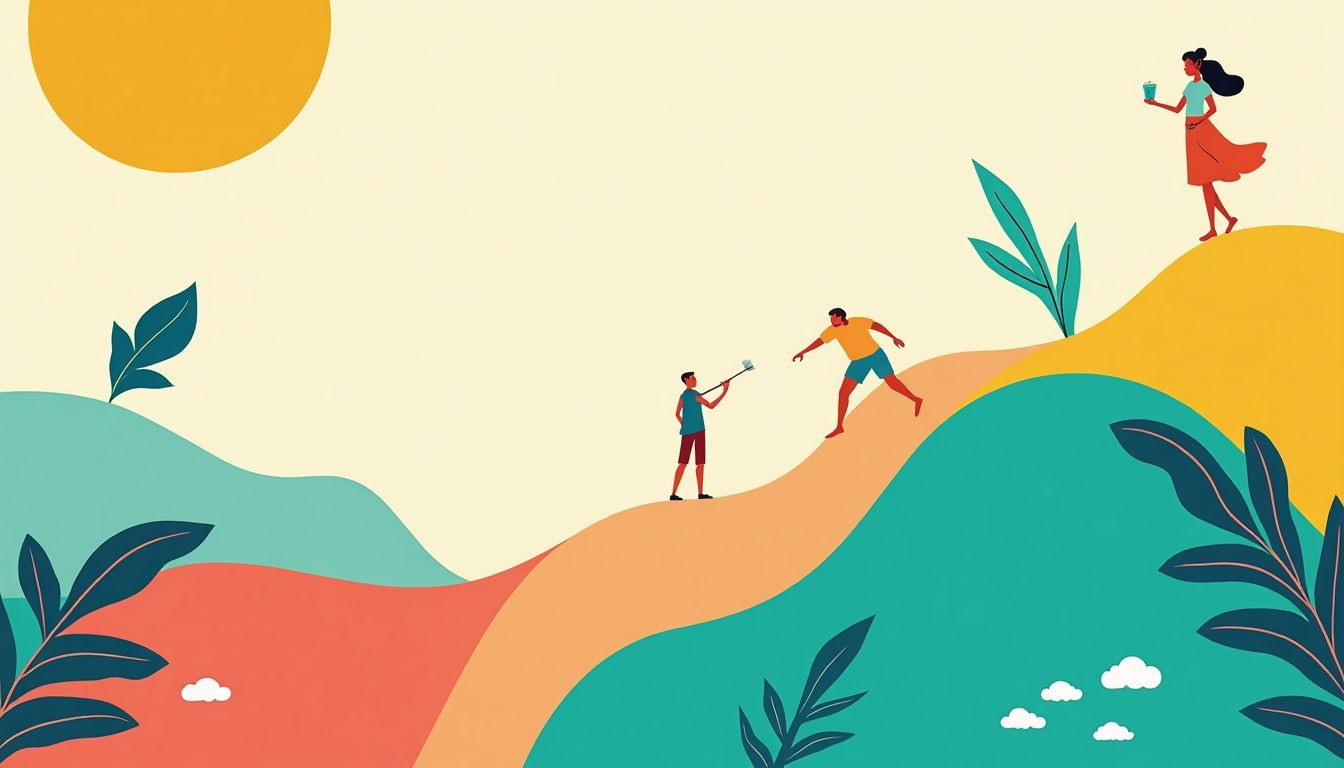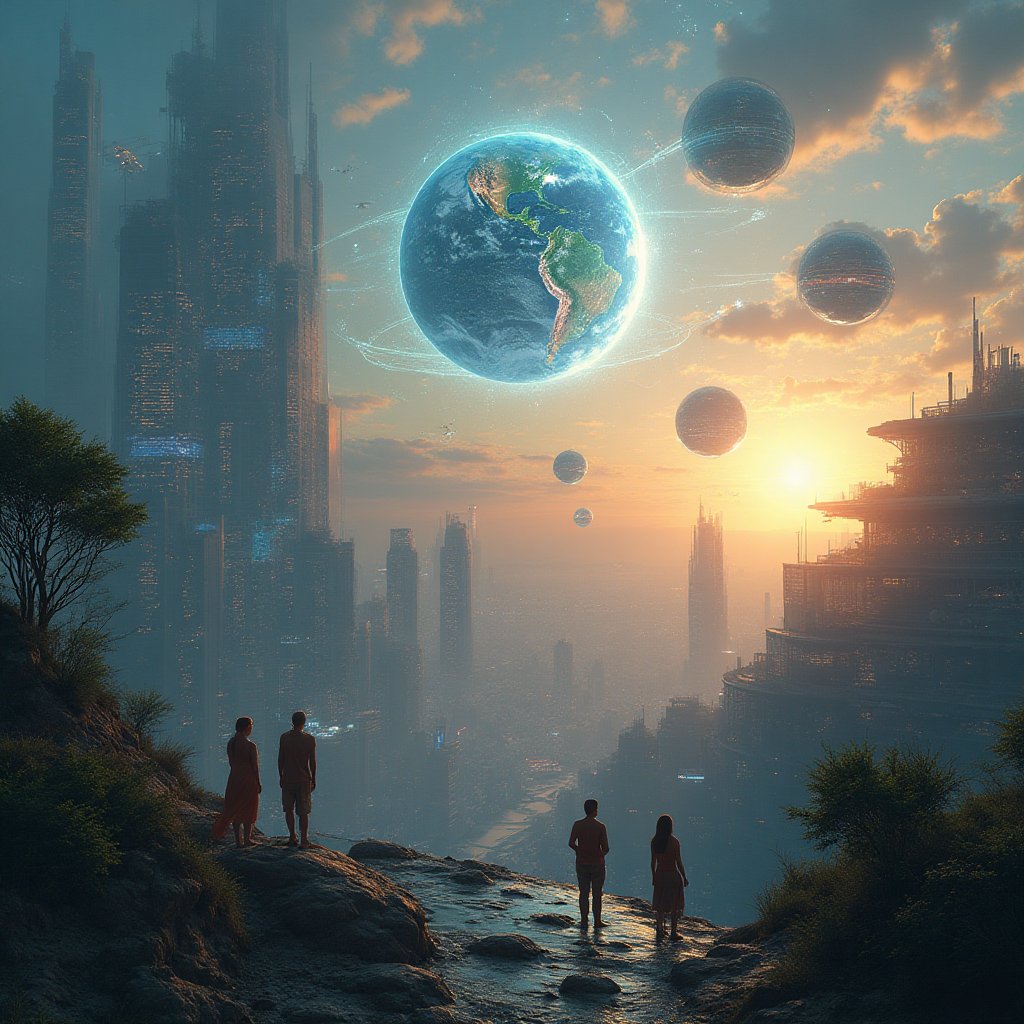Introduction
The only way to do great work is to love what you do. – Steve Jobs. This famous quote from the co-founder of Apple suggests that passion is a key ingredient in achieving fulfillment through our labor. But what happens when the concept of work undergoes a radical transformation, shaped by the rise of Artificial General Intelligence (AGI)? As AGI takes on tasks that once defined our careers, we find ourselves standing at a crossroads between productivity and pleasure. In this new world, where leisure replaces labor, the age-old question emerges: What truly brings us happiness?
Picture a society where your daily grind is replaced by endless free time. Does that sound like paradise or a recipe for chaos? As we break free from the confines of a 9-to-5 existence, the pursuit of joy evolves from traditional labor to more personalized, leisure-driven experiences. Renowned thinkers like psychologist Mihaly Csikszentmihalyi, known for his work on flow and happiness, have long argued that true satisfaction comes from engagement in enjoyable activities. Additionally, researchers like Daniel Kahneman have explored how happiness is more than just a series of moments, but a profound relationship with experiences. Even philosopher Alain de Botton has emphasized the importance of creating a life that resonates with our personal values rather than societal pressures. With all this in mind, we can’t help but ask: Is leisure the new key to happiness?
In this article, we’ll explore how AGI could redefine happiness, shaping a future where joy takes center stage, free from the shackles of traditional work roles.
1. The Rise of AGI and the Obsolescence of Work
1.1 Historical Context of Work
Throughout history, the concept of work has evolved significantly. In the early days, people engaged in manual labor, whether farming the land or crafting tools by hand. Fast forward to the industrial revolution, and we witnessed a shift where factories became the centers of productivity. This transformation brought about massive societal changes, from urbanization to the establishment of labor rights.
Then came the digital age, where information technology began to alter how we think about work. The rise of the internet and digital platforms led to the knowledge economy, emphasizing programming, creative industries, and services over traditional forms of labor. As we look to the future, AGI is poised to take this revolution further by automating tasks once reserved for human intellect, driving us toward a scenario where work, as we know it, may become obsolete. The implications of this shift are profound, as people will need to redefine their relationship with leisure and productivity.
1.2 Implications of AGI on Employment
The potential impact of AGI on job markets raises both exciting opportunities and pressing challenges. On one hand, AGI promises to eliminate tedious tasks, allowing individuals to channel their energies into more creative endeavors. Picture chefs experimenting with new recipes without worrying about mundane preparations or engineers designing more advanced technology can focus on innovation rather than routine maintenance. Sound great, right?
However, the flip side of the coin is concerning. Mass unemployment could result if businesses opt to replace humans with machines to cut costs and increase efficiency. This scenario raises ethical questions about the responsibility of societies to retrain individuals displaced by automation. Moreover, as more people find themselves with copious amounts of free time, how will they fill it? The challenge will be to guide humanity toward genuinely fulfilling activities that promote mental well-being rather than succumbing to boredom or isolation.
2. The Psychology of Joy: Understanding a Leisure-Centric Society
2.1 Traditional Views of Happiness
For centuries, philosophers and thinkers have debated what makes us happy. Authors like Aristotle once suggested that happiness is achieved through virtue and living a life of purpose. Fast forward to today, and we see happiness tagged to productivity and ambition. Seriously, have you ever heard someone say, "I'm just too happy sitting on a beach"? No, they’re yelling about their promotions! This focus on productivity often pushes joy aside, creating a paradox: as we chase success, we can end up unhappy. With AGI potentially freeing us from the daily grind, it’s time to rethink happiness. Maybe we should take a page out of Aristotle’s book—except for the togas, of course!
2.2 The Role of Leisure in Mental Health
Recent studies show that spending time on leisure activities can significantly boost our mental health. Activities like hiking, painting, or even binge-watching the latest season of a fabulous show can easily lift our spirits. According to the American Psychological Association, engaging in these activities can reduce stress and anxiety, providing a healthy escape from daily grind. Imagine how the world would look if people spent more time engaging in leisure rather than sitting in dreary offices. Honestly, I can picture a lot more hammock sales! The challenge for society is how to cultivate a culture that encourages leisure. After all, the happier we are, the more we spread joy like confetti—minus the mess.
3. Redefining Relationships in a Leisure Economy
3.1 Social Connections vs. Isolation
In a world dominated by leisure, the way we connect with others might change. The important social connections we build through working together could morph into more relaxed and enriching bonds. However, there’s a flip side. A focus on leisure could lead to loneliness if we spend more time plugged into gadgets rather than in face-to-face conversations. A report from the Pew Research Center states that too much screen time can lead to feelings of isolation. Imagine a world where we swapped “How’s work?” for “What’s your favorite episode of that new show?” Sounds fun, right? But it’s crucial we create spaces—both online and offline—that absorb us into community, keeping that lonely feeling at bay.
3.2 New Dynamics of Family and Friendship
Our family dynamics could also transform as leisure takes priority. Picture weekends filled with family painting sessions, game nights, or long bike rides. According to a study from APA, spending quality time with loved ones can boost happiness levels. Whether it’s having spa days or combatting it out on the virtual battlefield of a game, time spent together strengthens bonds. Just imagine trying to explain what your kids' little league skills are like when all they’ve done is shoot hoops in the driveway. Or how your friend may have never known you were a pro at karaoke, but his newfound love for leisure brings you both to the stage! By layering leisure over our relationships, we can give a whole new spin to familial bonds—less stress, more smiles!
4. Creative Fulfillment: The Arts and Leisure
4.1 The Future of Artistic Expression
Imagine a world where art is not just the pursuit of a few talented individuals but a part of everyday life for everyone. With the rise of Artificial General Intelligence (AGI), artistic expression can be transformed, making it more accessible and inclusive.
AGI has the potential to democratize art in several ways:
- Personalized Experiences: AGI can analyze individual preferences and suggest art forms that resonate deeply, tapping into personal experiences and emotions.
- Instant Collaboration: Artists around the globe can connect instantly through digital platforms, accessing new techniques, inspiration, and collaboration opportunities.
- Artistic Tools: AI can provide innovative tools and techniques, making it easier for anyone to create art, from painting to music production.
As an example, apps like Canva allow users to design visually stunning graphics using templates and AI-powered suggestions, bridging gaps between novice and expert creators.
In this new era, artistic expression could flourish, leading to a newfound appreciation for creativity in everyday life.
4.2 Bridging Technology and Traditional Art Forms
The integration of technology into traditional art forms is not just a trend; it symbolizes a hybrid future. Artists can embrace new tools while maintaining their unique styles and skills.
Some ways technology can enhance traditional art include:
- Virtual Art Exhibitions: Using platforms like Artsy, artists can showcase their work to a global audience without the constraints of physical space.
- Augmented Reality (AR): AR can be used to create immersive art experiences where viewers interact with art on a whole new level—like Wired describes, this allows users to add digital layers to classic artworks.
- Music Creation: Platforms such as Soundtrap enable users to collaborate on music projects remotely, breaking down geographical barriers and allowing artistic exchange.
By blending traditional techniques with modern technology, we can create a vibrantly diverse cultural tapestry that highlights human creativity's limitless nature.
5. Philosophical Implications of Happiness Redefined
5.1 Ethical Dilemmas in a Leisurely Society
As we transition toward a society that emphasizes leisure over work, we face several ethical questions. While the freedom from labor sounds appealing, it could lead to significant issues that we cannot overlook:
- Economic Disparities: If not managed well, wealth could concentrate in the hands of a few, leading to drastic inequalities in access to leisure resources.
- Manifestations of Isolation: As social interactions become less about necessity and more about choice, people could risk becoming isolated. Balancing connection through leisure is critical.
- Redefining Identity: Many derive their identity from their profession. How will people find purpose when work is no longer central to society?
Tackling these dilemmas requires a collective societal effort—one that might involve setting new norms around leisure and community support.
5.2 The Search for Meaning Beyond Work
In a world where people are free to pursue leisure as they please, they may need to redefine what brings meaning to their lives. Exploring this new landscape of leisure might lead to discoveries that enrich our existence.
Some avenues individuals may explore include:
- Creative Pursuits: Drawing, painting, writing, or taking up music can lead us to uncover aspects of ourselves previously hidden by the busyness of life.
- Community Engagement: Participating in local events or volunteering can foster connections that bring fulfillment and joy.
- Self-Discovery: Embracing hobbies and interests allows individuals to learn more about themselves, ultimately leading to a greater sense of identity and purpose.
The journey to find purpose can become a fascinating quest, prompting conversations and connections that transcend former workplace boundaries.
6. AI Solutions: How Would AI Tackle This Issue?
As we step into a world reshaped by Artificial General Intelligence (AGI), the potential for these technologies to facilitate a new leisure economy is astounding. Here's how we can utilize AI to tackle this transition:
6.1 Personalized Leisure Recommendations
Imagine a world where AI understands your preferences so deeply it can recommend leisure activities tailored specifically for you. By analyzing behavioral patterns through machine learning algorithms, an AI can suggest activities ranging from hiking trails to art classes that align with your interests. This hyper-personalization could help people discover joyful pursuits they never knew they enjoyed. Think of it as having a personal tour guide in your own life, showing you the hidden gems around.
6.2 Creating Virtual Environments for Interaction
Technology has already transformed how we interact, but there’s plenty of room to grow. With advancements in virtual reality (VR), AI can create immersive environments that enhance social interaction. Imagine participating in virtual concerts, art exhibitions, or even cooking classes with friends scattered across the globe, all made possible by AI's ability to create realistic shared spaces. For instance, platforms like Oasis are already beginning to scratch the surface of this possibility.
6.3 Tracking Well-being Metrics
AI can play a vital role in monitoring our emotional and mental health, offering data-driven insights for better leisure choices. By developing applications that track well-being metrics—like stress levels, mood changes, and time spent on activities—AI can provide personalized suggestions for leisure activities that promote happiness and fulfillment. This could resemble apps like Headspace that help guide users toward mindfulness and well-being, but taken a step further into leisure. It’s about ensuring that what we choose to do brings joy and meaning into our lives.
Actions Schedule/Roadmap (Day 1 to Year 2)
Day 1: Establish a Cross-Disciplinary Team
Form a team of sociologists, psychologists, technologists, and AI specialists, bringing a diverse skill set together. This interdisciplinary approach, similar to how NASA integrates various fields for space exploration, will foster innovative ideas and solutions.
Week 1: Research and Data Acquisition
Collect existing data related to leisure activities and happiness indices. Review sociological studies and psychological theories on leisure that might inform the project’s focus. The team should leverage resources from reputable organizations like the American Psychological Association, utilizing their wealth of knowledge about the effects of leisure on mental health.
Week 2: Conceptual Framework Development
Create a detailed blueprint for adaptive leisure experiences. This framework should outline user needs, possible AI applications, and the anticipated social impact. Consider employing principles used in user-centered design that put the participant’s experience first.
Month 1: Initial Prototyping
Develop a minimal viable product (MVP) for a leisure recommender system that integrates AI algorithms for personalization. Think of it as a prototype of a personal leisure assistant reminiscent of what Siri does for information, but focused on leisure.
Month 2: User Testing
Conduct user tests with diverse groups, taking cues from research methodologies used in participatory design. Gather feedback on the MVP, focusing on functionality, user engagement, and how well it meets people's leisure needs.
Month 3: Iteration and Development
Incorporate user feedback into the design to refine the product. This iterative process is critical to ensure that the final offering is both functional and enjoyable. Start looking for partnerships with local recreational organizations to test features in real scenarios.
Year 1: Marketing and Awareness Campaigns
Launch awareness campaigns highlighting the benefits of a leisure-focused lifestyle, much like a health campaign but for happiness. Develop content and outreach strategies using social media platforms like Instagram and Twitter to spread the message.
Year 1.5: Community Building Initiatives
Engage users through community-building events that promote leisure activities. Consider how platforms like Meetup have successfully created spaces for shared interests. This will cement user engagement and help refine features based on real interaction data.
Year 2: Social Impact Evaluation
Evaluate the social impact and mental health outcomes associated with the newly created leisure economy. Use surveys and data analytics to gauge user satisfaction and happiness metrics. This comprehensive evaluation can inform future iterations and expansions of the project, akin to ongoing analyses conducted by major research organizations like Pew Research Center.
Conclusion: Embracing a New Era of Happiness
Freeing ourselves from the constraints of work opens the door to redefining happiness through leisure. As AGI continues to evolve and shape our landscapes, we face the daring yet exhilarating challenge of envisioning a new world where joy is no longer tethered to productivity. The future of happiness lies within us, fueled by creativity, connection, and the very essence of what it means to be human. In this new setup, as we delight in leisure, we must navigate the complexities it brings — finding not just joy, but purpose in this freedom. After all, in an age where machines do the heavy lifting, true fulfillment may come from the depths of our passions and the strength of our human bonds. What will this transformed landscape look like for you? How will you choose to spend your time when the possibility for leisure expands endlessly? These are the questions that will define our journey in this brave new world.
Frequently Asked Questions (FAQ)
1. What is AGI?
AGI stands for Artificial General Intelligence. It's a type of AI that can understand, learn, and apply intelligence just like humans across many different tasks. Unlike narrow AI, which is designed for specific activities, AGI would possess the ability to think and reason, potentially impacting every aspect of our lives, including our happiness and how we spend our leisure time.
2. How might leisure change in a world without work?
In a world where AGI takes over many jobs, leisure could evolve in exciting ways. Instead of being something we enjoy only after working hard, leisure might become the primary focus of our lives. Here are some potential changes:
- Increased time for hobbies, arts, and creativity.
- Stronger connections with family and friends through shared activities.
- Greater focus on personal growth and well-being.
- More opportunities for travel and exploration.
This shift could change how society views leisure itself, transforming it from a reward for labor into a vital part of our existence.
3. Can leisure truly lead to happiness?
Yes, leisure can enhance happiness and overall well-being. Studies have shown that engaging in enjoyable activities, like sports or arts, can improve mental health and decrease stress levels. However, happiness is complex. Here’s a breakdown:
- Leisure provides relaxation and joy.
- Social interactions during leisure can reduce feelings of loneliness.
- Pursuing hobbies can boost self-esteem and sense of accomplishment.
While leisure is important, it is also essential to explore different ways to experience fulfillment and joy beyond traditional definitions.
4. What ethical dilemmas might arise from a leisure-centric society?
As our focus shifts to leisure, several ethical concerns may come to light. Here are a few key dilemmas:
- Economic Disparities: If only some people can afford to pursue leisure activities, it could create greater inequality.
- Social Isolation: While leisure can foster community, some might feel isolated if they don’t engage.
- Identity Issues: Many people define themselves by their work. Losing that could lead to identity crises.
Addressing these issues will be crucial as we navigate our new reality.
5. What can individuals do to prepare for a leisure-focused future?
As we approach a future with AGI, individuals can take certain steps to enjoy the shifting landscape:
- Learn New Skills: Dive into hobbies or interests that you find fulfilling. This could be anything from painting to coding.
- Build Community: Connect with others who share similar interests to foster relationships that may enhance your leisure time.
- Embrace Mindfulness: Practice mindfulness techniques to enhance your appreciation of leisure moments.
These steps can help create a more enriching and fulfilling experience as we transition into this new era.
6. How can technology improve our leisure experiences?
Technology, especially AI, can change how we experience leisure. For instance:
- Personalized Recommendations: AI algorithms could suggest leisure activities based on your interests and past behaviors.
- Virtual Reality (VR): VR can allow people to explore new environments and experiences from the comfort of their homes.
- Community Platforms: Apps can connect people with similar interests to foster interactions and friendships.
By embracing these technologies, we can enhance the quality of our leisure time and make it more enjoyable.
7. Will AGI replace all forms of work?
While AGI will likely automate many jobs, it’s important to remember that not all work will disappear. There will still be roles that require a human touch, especially in areas like healthcare and education. The focus may shift from traditional jobs to roles that emphasize creativity, empathy, and personal connection.
Wait! There's more...check out our gripping short story that continues the journey: The Siren’s Cache
Disclaimer: This article may contain affiliate links. If you click on these links and make a purchase, we may receive a commission at no additional cost to you. Our recommendations and reviews are always independent and objective, aiming to provide you with the best information and resources.
Get Exclusive Stories, Photos, Art & Offers - Subscribe Today!





























Post Comment
You must be logged in to post a comment.